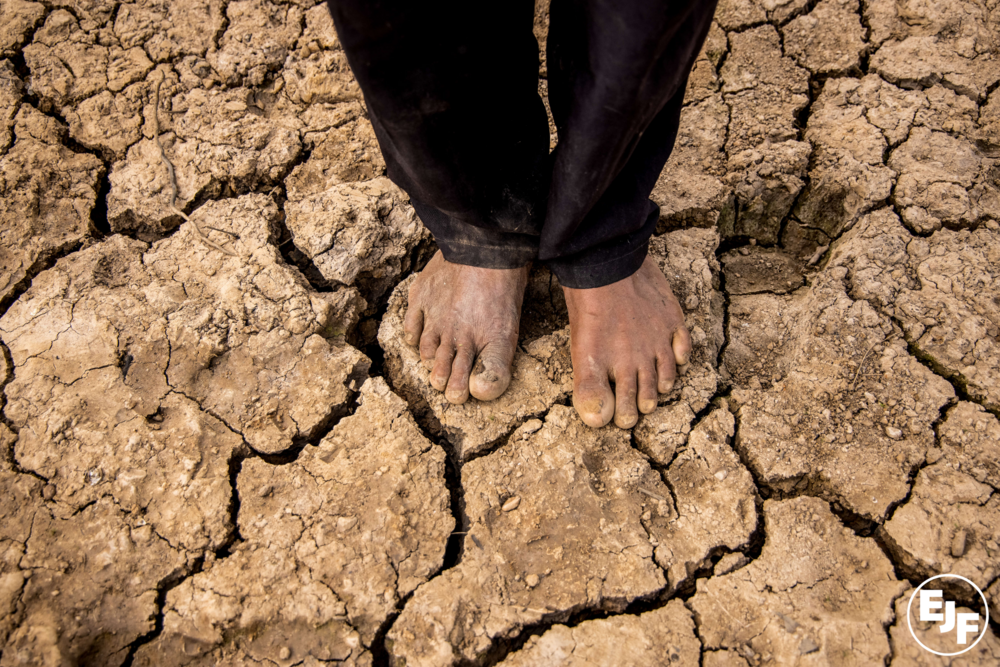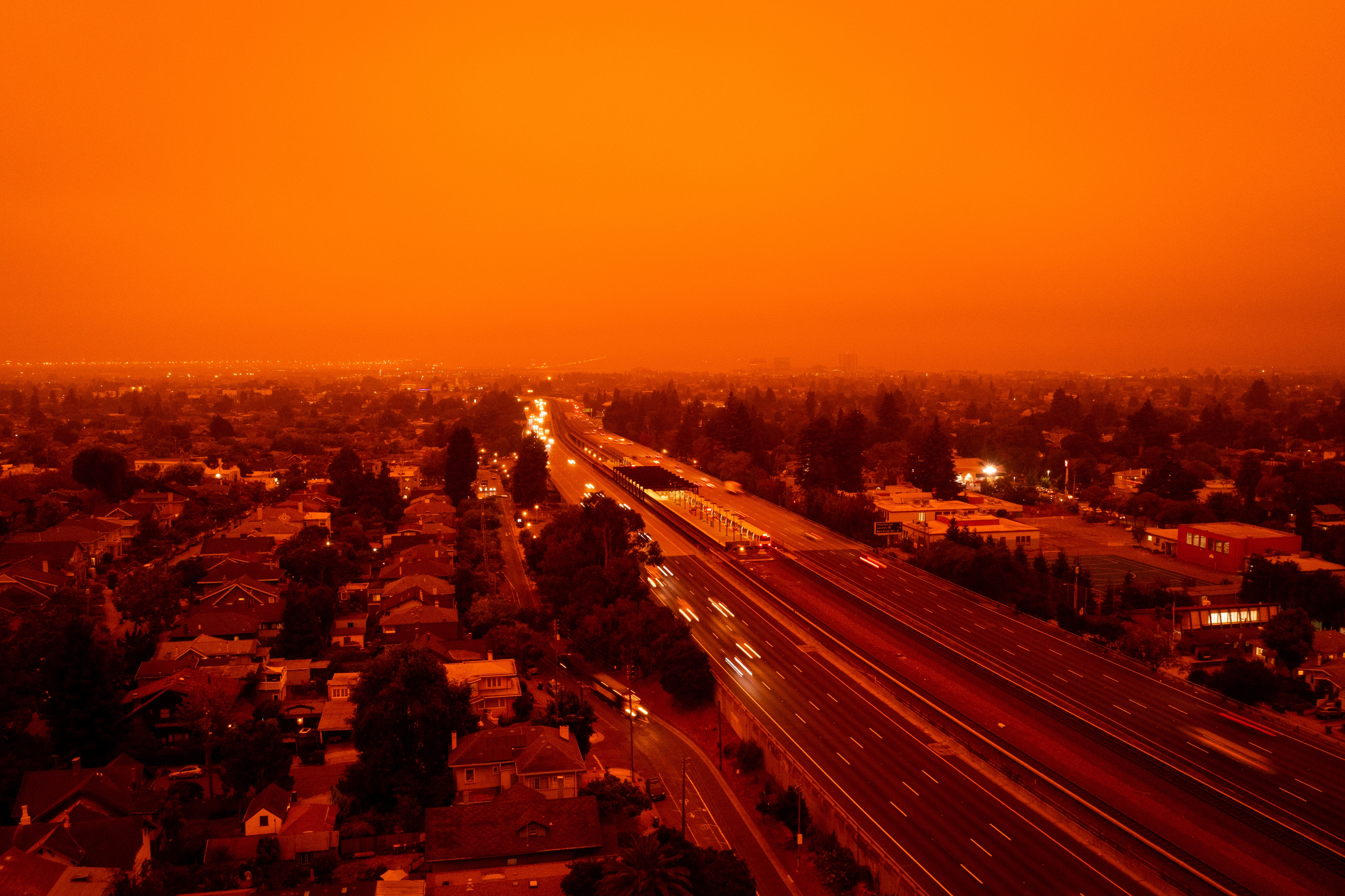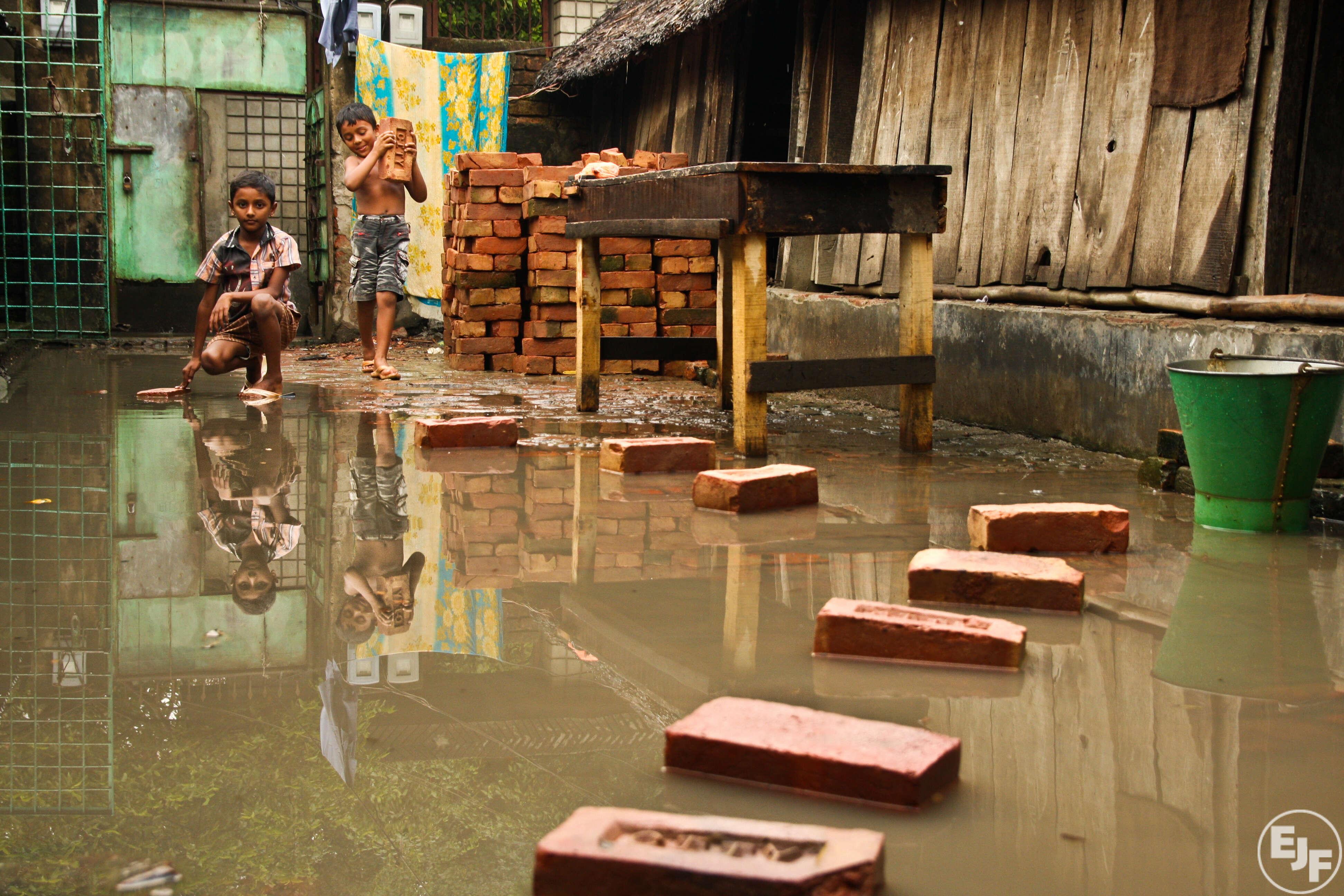
Gross injustice: IPCC report confirms the urgent and moral need for climate adaptation action
Today’s Intergovernmental Panel on Climate Change report shows the grim reality of the climate crisis, revealing the extent to which global heating is forcing people from their homes, devastating their livelihoods and well-being, and undermining their fundamental human rights.
Steve Trent, CEO and founder of the Environmental Justice Foundation, said: “The climate crisis is a human rights crisis, and the latest IPCC report has again confirmed the immense human suffering it will bring. Developed nations – who have contributed the most to heating our planet and benefited the most – must do more to address the inequalities, loss and damage driven by global heating. They must increase their support to developing nations and the most vulnerable communities, who did the least to cause this crisis. In particular, climate refugees need urgent protection in the form of a robust international legal framework that codifies both rights and responsibilities.
As the tragedy unfolding in Ukraine shows, our fossil fuel addiction brings death and misery not only through the climate crisis, but also by bankrolling conflicts. Decisive action on climate is not a ‘cost’: it is an investment, not just in our future, but in our survival. Such investment would represent the greatest cost-saving of human history.”
The stark revelation in the report of the scale of the human rights crisis that global heating has wrought is matched only by its gross inequality. It shows how vital it is that rich nations – who have benefitted the most from carbon-rich development – must step up to help those on the front lines, most of whom have done least to cause this crisis.
Justice
Environmental justice and protection of human rights must be at the centre of all climate action – we have a political and moral obligation to recognise this. For decades, and with a fraction of the attention, countries in the global south have suffered the greatest impacts of climate breakdown, in a pattern of gross injustice. 99% of all deaths from weather-related disasters occur in the world’s 50 least-developed countries — countries that have contributed less than 1% of global carbon emissions.
Currently, most climate funding is allocated to emissions-cutting projects – mitigation – rather than adaptation. While reducing emissions is vital, we need to acknowledge there are parts of the climate crisis which are already ‘locked in’. We must support communities to withstand the storm surges and rising sea levels that are already here. The new climate pact agreed at COP26 pledged to double the proportion of climate finance going to adaptation, but the UN, and Bangladesh and many other developing countries are calling for a 50:50 funding split between adaptation and mitigation. Today’s report shows in detail how necessary that is.
Climate refugees
With limited progress made on loss and damage funding or climate finance, and countries therefore unable to adapt to the impacts of climate breakdown, the issue of climate refugees must now take centre stage. Developed nations need to stop dodging the question of climate displacement. Millions of people have already been displaced and millions more will lose their homes in the coming years. This is not an issue that can be ignored or delayed any longer.
Climate refugees urgently need an international legal framework to allow them to move safely and with dignity. Despite more people being displaced by the changing climate than by war, they are falling through the gaps, with no binding legal protections.
The IPCC report has confirmed what has become the common knowledge, as unprecedented fires, floods, andstorms rage across the globe, leaving a trail of destroyed homes, devastated livelihoods and loss of life: the climate crisis is here. All countries, but developed nations especially, must now ensure that the poorest, most marginalised and disenfranchised communities around the world are protected against these impacts.
Failure to act will mean blood on our hands. As António Guterres, Secretary-General of the United Nations says: "Delay means death... Every fraction of a degree matters, every voice can make a difference."
SIGN UP FOR OUR EMAILS AND STAY UP TO DATE WITH EJF

